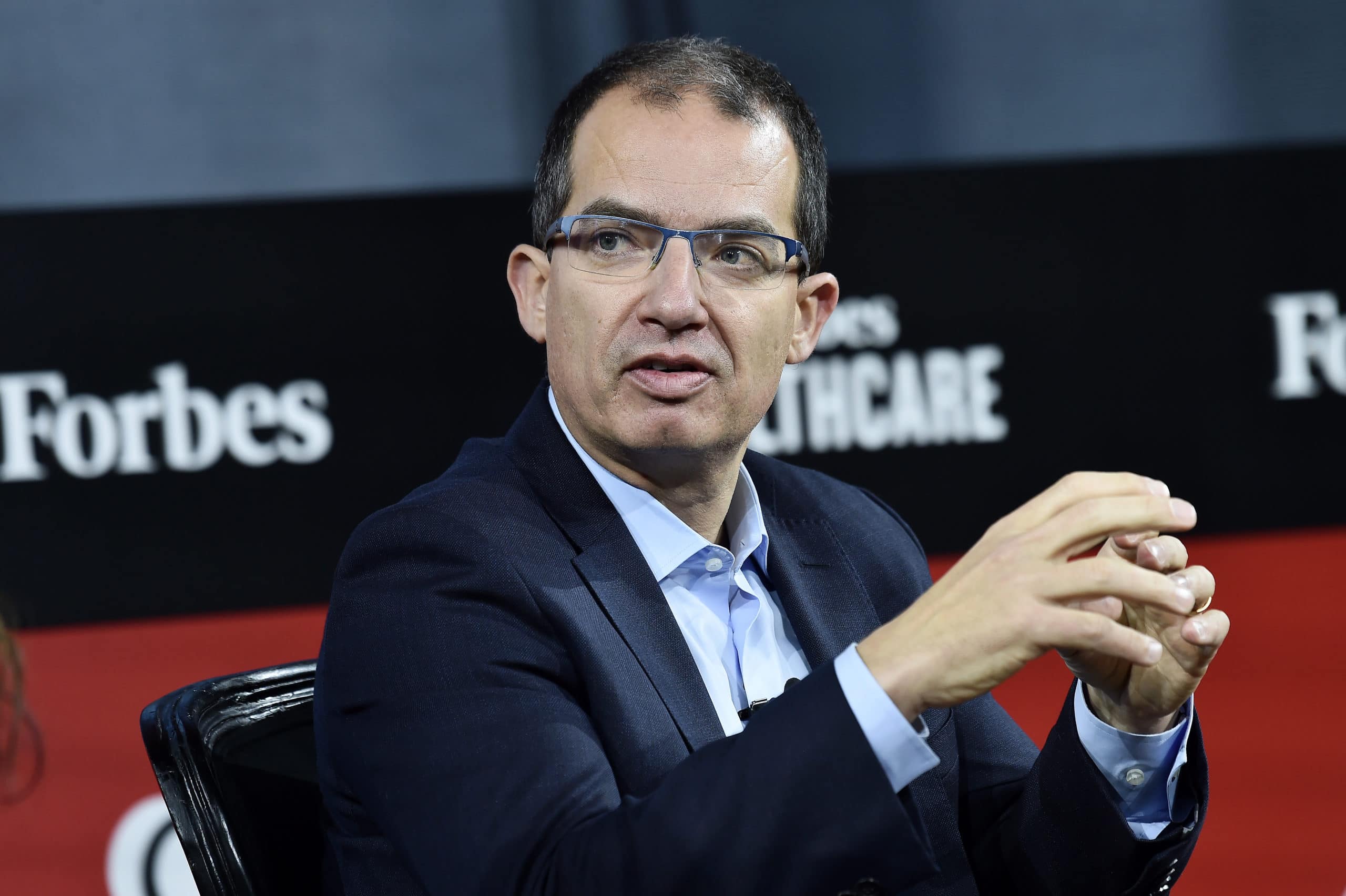TOPLINE Moderna CEO Stéphane Bancel believes that the Covid-19 pandemic could be over in a year as vaccine production ramps up to meet global demand, he said in an interview on Thursday, an ambitious statement considering only 2% of people in low-income countries have received a vaccine dose.
KEY FACTS
In an interview with Swiss newspaper Neue Zuercher Zeitung, Bancel said the continuing expansion of global vaccine production capacity will make sure that enough doses are available to cover the entire world’s population by the middle of next year.
When asked about when things could return to normal he said: “In a year, I assume.”
Bancel noted that people who choose not to get vaccinated will likely “immunize themselves naturally” as the highly contagious delta variant spreads rapidly across the world.
The pharmaceutical executive added that people who get vaccinated will enjoy a good winter while those who don’t will have to live with the risk of getting sick or even hospitalized due to delta.
Loading...
Bancel said he believed that people will need a booster shot soon and the company’s version will be half a dose of the original formulation.
Moderna is also currently testing what Bancel called a “Delta-optimized variant” of the vaccine which will form the basis of booster shots in 2022.
BIG NUMBER
43.9%. That’s the percentage of the world population that has received at least one dose of a Covid-19 vaccine, according to a tracker run by Our World In Data. But this number is heavily skewed by high vaccination rates in high-income and upper-middle-income nations where more than 60% have received at least one dose. The number slips down to just under 30% of lower-middle-income countries and just 2.1% for lower-income countries.
KEY BACKGROUND
The global inequity in vaccine distribution was on display at the United Nations General Assembly earlier this week. In her address to the assembly, Norwegian Prime Minister Erna Solberg noted that fewer than 1 in 20 people in Africa were fully vaccinated while in Europe that number stood at one in two. Under pressure to rectify this problem, U.S. President Joe Biden announced in his UNGA address that America would purchase an additional 500 million doses of Pfizer vaccines to share with the world, on top of the existing commitment of 500 million shots.
Full coverage and live updates on the Coronavirus
By Siladitya Ray, Forbes Staff
Loading...
